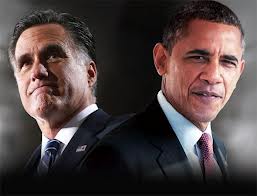The Aftermath of US Decision Day 2012

Ali Rizk
Decision day has come for the American voters. Citizens headed to the ballot boxes in the various American states to cast their ballots in what is widely perceived as one of the closest contest the US has witnessed. With opinion polls giving incumbent president Barak Obama a slim lead not exceeding three percentage points nationwide as well as in the crucial swing states, voter turnout is expected to be a decisive factor. Obama himself offered a realistic and straightforward assessment, saying:
 "We feel confident we've got the votes to win, but it's going to depend ultimately on whether those votes turn out. And so I would encourage everybody on all sides just to make sure that you exercise this precious right that we have that people fought so hard for us to have."
"We feel confident we've got the votes to win, but it's going to depend ultimately on whether those votes turn out. And so I would encourage everybody on all sides just to make sure that you exercise this precious right that we have that people fought so hard for us to have."
But securing such a turnout is not guaranteed to be an easy task with estimates pointing out that the percentage of eligible voters who will actually head to the polling stations will not exceed the 50 percent range. The decrease in voter participation which appears to be a growing trend (the estimates show that turnout this year will be lower than that of both 2004 and 2008) can be attributed to a number of factors but perhaps first and foremost is that both candidates appear not to possess solution to the problems facing the average US citizen like unemployment and other economic and financial dilemmas. In that perspective a notable number of American citizens are increasingly expressing their opposition to the two party systems that dominates the US political arena.
The same indifference towards the 2012 contest for the White House seems to be apparent beyond the US borders. After many people had high hopes that a man (Barak Obama) had finally come who could steer US foreign policy in a different direction, there has been widespread disappointment with the foreign policy performance of the incumbent Barak Obama who among other things has not lived up the pledge of closing Guantanamo prison and has not altered the "Israeli" first approach which has dominated US policy in the middle east since the aftermath of 1967 war.
But at the same time there seems to be a general consensus in foreign land that an Obama re-election would be preferable. The Republican party in general (and not Mitt Romney specifically) has come to be associated with militarization, extremism and a disregard for the opinions and advice of allies. And with the ongoing war mongering from "Israeli" premier Benjamin Netanyahu towards the Islamic Republic of Iran (Netanyahu renewed his war threats in a recent televised interview saying:
"When former Prime Minister David Ben-Gurion declared the establishment of the State of "Israel", was it with the consent of the Americans? When former Prime Minister Menachem Begin bombed the Iraqi nuclear reactor, was that with the consent of the Americans?" "If there someone here who, as Prime Minister of Israel, cannot act on things that are fundamental to the State, to its future and to its security and depends only on approval of others, he does not deserve to lead").
Add to this the close friendship between Netanyahu and Romney and Netahyahu's clear endorsement of Romney during the latter's visit to the occupied territories, and let's not forget the accusations made by Romney to Obama of "throwing "Israel" under the bus".
In fact Romney has even echoed the Netanyahu argument which has been refuted by the American defense establishment and which speaks of Iran posing a threat to world security including the national security of the US.
But the latter factor leads us to an important reality. No matter how much a threat is exaggerated, whether be it the threat supposedly from Iran or anyone else, the American people will not tolerate any more unnecessary wars which made George W Bush one of the most unpopular president in US history. The American public will not be fooled again and the Obama administration clearly realizes this factor which is why it has resisted the pressures from Tel Aviv to adopt the "Israeli" line. In fact, as mentioned above, the military and defense establishment has been notably straightforward in saying that Iran poses no threat to US national security.
Once it became clear that resisting these "Israeli" pressures was not proving politically costly for Obama because he had the backing of the US public, even Romney sought to adapt by referring to war as "the last option" in dealing with Iran. So even the Republican candidate had to succumb to the reality of the anti-war mood dominating the atmosphere in the US.
This leaves us with one last important question. If both candidates are unlikely to resort to "American boots on the ground" which one of them is more likely to work in order to reach a settlement on various outstanding and intertwined issues like Iran, Syria and the relationship with Russia?
Regardless of the disinterest amongst many towards these elections, it has to be said they are being held at a crucial time, especially in the Middle East where popular movements have overthrown brutal dictators. Reaching a solution to the outstanding issues in the region will require the participation of Washington and if one must choose, it is Obama who is more likely of the two who will work for reaching settlements. Obama did show a sense of realism early on in his presidency, recognizing the need for a new approach to the Muslim world including towards Iran.
He was quick to bow down however to the pressures of the likes of the "Israeli" lobby. There is talk that if re-elected Obama may bring in John Kerry as his secretary of state. Perhaps this is a sign that Obama might show more courage in his second term by appointing someone who is known to be a strong proponent of dialogue with Iran as opposed to his appointment of the hawkish Dennis Ross to take charge of the Iranian file following his victory in the elections of 2008.
Source: moqawama.org
Comments




